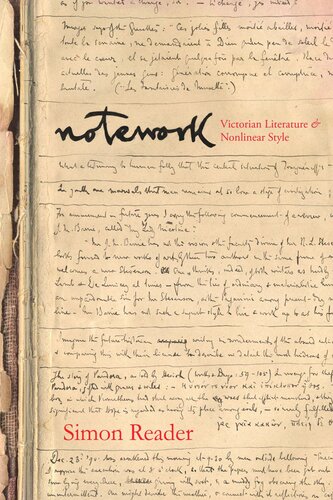

Most ebook files are in PDF format, so you can easily read them using various software such as Foxit Reader or directly on the Google Chrome browser.
Some ebook files are released by publishers in other formats such as .awz, .mobi, .epub, .fb2, etc. You may need to install specific software to read these formats on mobile/PC, such as Calibre.
Please read the tutorial at this link: https://ebookbell.com/faq
We offer FREE conversion to the popular formats you request; however, this may take some time. Therefore, right after payment, please email us, and we will try to provide the service as quickly as possible.
For some exceptional file formats or broken links (if any), please refrain from opening any disputes. Instead, email us first, and we will try to assist within a maximum of 6 hours.
EbookBell Team

4.7
66 reviewsNotework begins with a striking insight: the writer's notebook is a genre in itself. Simon Reader pursues this argument in original readings of unpublished writing by prominent Victorians, offering a more expansive approach to literary formalism for the twenty-first century. Neither drafts nor diaries, the notes of Charles Darwin, Oscar Wilde, Gerard Manley Hopkins, Vernon Lee, and George Gissing record ephemeral and nonlinear experiences, revealing each author's desire to leave their fragments scattered and unused.
Presenting notes in terms of genre allows Reader to suggest inventive new accounts of key Victorian texts, including The Picture of Dorian Gray, On the Origin of Species, and Hopkins's devotional lyrics, and to reinterpret these works as meditations on the ethics of compiling and using data. In this way, Notework recasts information collection as a personal and expressive activity that comes into focus against large-scale systems of knowledge organization. Finding resonance between today's digital culture and its nineteenth-century precursors, Reader honors our most disposable, improvised, and fleeting textual gestures.